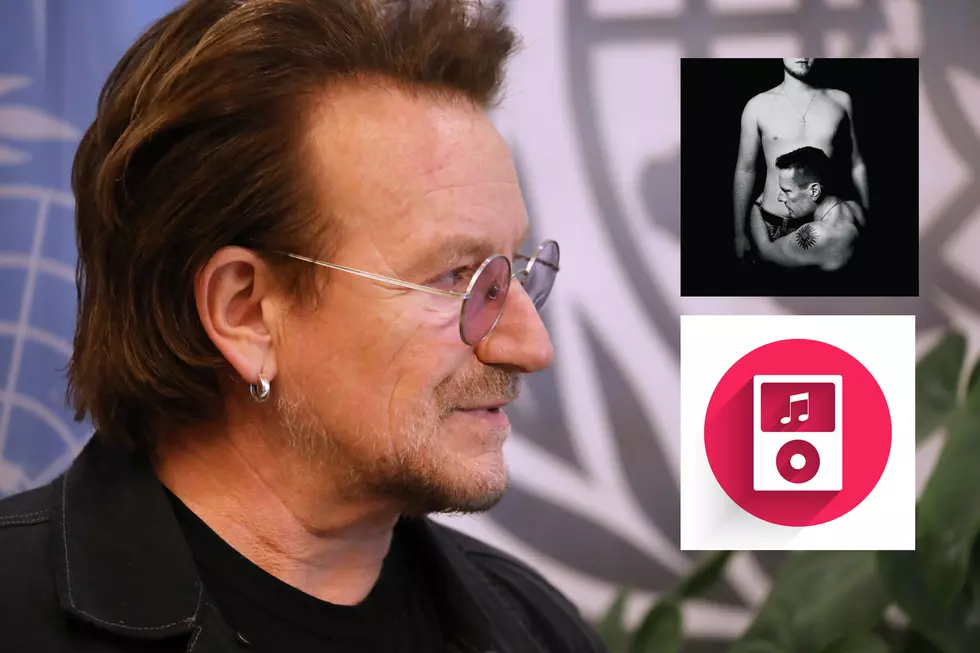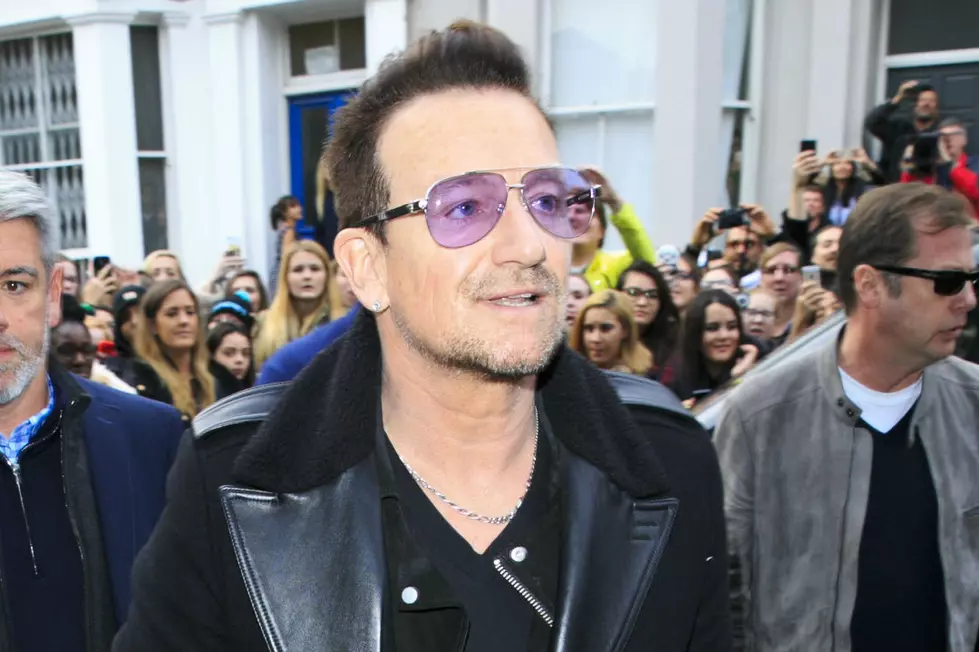
Bono Is Sorry for Forcing U2 Album on to Everyone’s iPods in 2014
U2 may be one of the biggest bands in the world, but that doesn't mean there weren't a few missteps along the way. One of the biggest came in 2014 when the band partnered with Apple to add their Songs of Innocence album onto everyone's iPods, a move that Bono now admits was an "overreach" and he now regrets, as he reveals in his new memoir, "40 Songs, One Story."
An excerpt from the book was published over the weekend through The Guardian, with Bono explaining in detail how the idea came about and taking full responsibility for what happened after.
After initially partnering with Apple to brand their own iPod in the early 2000s with great success, U2 once again found themselves teaming up with Apple in 2014, this time discussing the idea of releasing their music for free.
Initially getting some pushback from Apple, Bono recalls explaining, “I don’t think we give it away free. I think you pay us for it, and then you give it away free, as a gift to people. Wouldn’t that be wonderful?” But Apple's Tim Cook explained, "We're not a subscription organization."
Bono countered, "Not yet. Let ours be the first." Cook then added, “There’s something not right about giving your art away for free. And this is just to people who like U2?”
“Well,” Bono replied, “I think we should give it away to everybody. I mean, it’s their choice whether they want to listen to it.”
The singer adds that he feels his idea was a case of "vaunting (or vaulting) ambition," adding, "Critics might accuse me of overreach. It is."
"If just getting our music to people who like our music was the idea, that was a good idea. But if the idea was getting our music to people who might not have had a remote interest in our music, maybe there might be some pushback. But what was the worst that could happen?" pondered the singer. "It would be like junk mail. Wouldn’t it? Like taking our bottle of milk and leaving it on the doorstep of every house in the neighborhood. Not. Quite. True."
Bono then states, "On 9 September 2014, we didn’t just put our bottle of milk at the door but in every fridge in every house in town. In some cases we poured it on to the good people’s cornflakes. And some people like to pour their own milk. And others are lactose intolerant."
Reflecting on how things played out, the singer states, "I take full responsibility. Not Guy O, not Edge, not Adam, not Larry, not Tim Cook, not Eddy Cue. I’d thought if we could just put our music within reach of people, they might choose to reach out toward it. Not quite. As one social media wisecracker put it, 'Woke up this morning to find Bono in my kitchen, drinking my coffee, wearing my dressing gown, reading my paper.' Or, less kind, 'The free U2 album is overpriced.' Mea culpa."
"At first I thought this was just an internet squall. We were Santa Claus and we’d knocked a few bricks out as we went down the chimney with our bag of songs. But quite quickly we realized we’d bumped into a serious discussion about the access of big tech to our lives," says Bono. "The part of me that will always be punk rock thought this was exactly what the Clash would do. Subversive. But subversive is hard to claim when you’re working with a company that’s about to be the biggest on Earth."
That said, Bono credits Apple for their handling of the situation. "For all the custard pies it brought Apple – who swiftly provided a way to delete the album – Tim Cook never blinked. 'You talked us into an experiment,' he said. 'We ran with it. It may not have worked, but we have to experiment, because the music business in its present form is not working for everyone.'"
Bono concludes, "If you need any more clues as to why Steve Jobs picked Tim Cook to take on the leadership of Apple, this is one. Probably instinctively conservative, he was ready to try something different to solve a problem. When it went wrong, he was ready to take responsibility. And while he couldn’t fire the person who put the problem on his desk, it would have been all too easy to point the finger at me. We’d learned a lesson, but we’d have to be careful where we would tread for some time. It was not just a banana skin. It was a landmine."
The experiment didn't exactly pan out great for U2 either. Songs of Innocence peaked at No. 9 on the Billboard 200 Album chart, but the album has yet to reach gold or platinum status in the U.S. "The Miracle" was the album's biggest single, peaking at No. 12 on Billboard Rock Airplay chart.
The 66 Best Metal Albums of the Decade: 2010 - 2019
More From Highway 98.9










